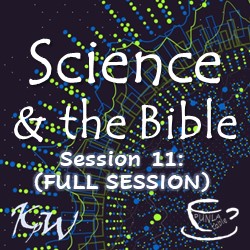(Written by Dr. Kip Wehrman 07/26/2023)
Hello everyone. My name is Kip. Welcome to the PUNLA Coffee Table. Today, we are going to do something a little different. I recently read several of the letters from the Apostle Paul from start to finish in a single setting. These are not long letters, maybe 15 minutes to read each. Today, I want to look at the letter to the Ephesians.
Ephesians Summary and Reflection
Context
The author is thought to be the Apostle Paul. The audience is the churches in and around the city of Ephesus. Ephesus was a major city in Asia-minor. Ephesus was a wealthy commercial center of the Roman empire and the home of the worship of the goddess Diana. Paul visited Ephesus during his second missionary journey (Acts 18). Paul spent 3 years in Ephesus during his third missionary journey (Acts 19-20). Most historians believe the letter was written between AD61-63 while Paul was in prison in Rome. Paul mentioned Tychicus, who was most likely the carrier of this letter. Tychicus also delivered the letters of Philemon and Colossians. However, unlike the other letters of Paul, there are no specific problems addressed. Instead, Paul addresses the greatness of being part of the body of Christ.
Summary
General outline,
- Introduction (Ephesians 1:1-2)
- Riches in Christ (Ephesians 1:3-3:21)
- Living in Christ (Ephesians 4:1-6:20)
- Concluding Remarks (Ephesians 6:21-24)
After Paul’s customary greeting, thanksgiving and prayer, Paul shares the blessings of following Jesus. God has always had a plan and Jesus Christ was the culmination making a way for both Jew and Gentile to become part of the family of God. Paul describes how through Christ we have become alive in a unified peace that can only come in Christ. Now that Christ lives in us we have unlimited resources from the Holy Spirit. Ephesians 3:18-19 (NLT), “18And may you have the power to understand, as all God’s people should, how wide, how long, how high, and how deep his love is. 19May you experience the love of Christ, though it is too great to understand fully. Then you will be made complete with all the fullness of life and power that comes from God.”
Paul’s focus for the second part of this letter was to demonstrate what living a Christ centered life looks like. We are children of God and as such we should live a life worthy of our calling. We should be humble and gentle and make allowances for each other in the body of Christ. We should live in a way that shines light into the darkness of the world in order to reach our neighbors for Christ. Paul then addresses relationships, specifically husbands and wives, children and parents, and slaves and masters. Paul then ends this letter with the metaphor of the armor of God and how Christian’s must intentionally put on each metaphorical piece to be prepared for the real life battles we will be facing. After this, Paul closes his letter by telling the Ephesians that Tychicus will update them further with a full report of what and how Paul is doing.
Reflections
My first reflection was how upbeat this letter was. Typically, Paul addresses some hard issues in his letters. However, in this letter Paul is inspiring and encouraging his readers from start to finish. Ephesians 1:6-8 (NLT), “6So we praise God for the glorious grace he has poured out on us who belong to his dear Son. 7He is so rich in kindness and grace that he purchased our freedom with the blood of his Son and forgave our sins. 8He has showered his kindness on us, along with all wisdom and understanding.” Paul is stressing how thankful we are to be part of God’s family. We are provided with limitless resources of wisdom and understanding. Ephesians 2:7 (NLT), “7So God can point to us in all future ages as examples of the incredible wealth of his grace and kindness toward us, as shown in all he has done for us who are united with Christ Jesus.” The Greek is aiosin eperchomenios or ages to come. People in future ages to come will look at the Ephesians as examples. It is interesting that Paul would refer to the “ages to come” with the same language he uses other places to talk about the coming end of the age or at least the end of the age he was living in. The modern perspective on how Paul used this word is often missed in our zeal for eschatology. Christians today are providing examples for people in the ages to come after us. Ephesians 2:8-10 (NLT), “8God saved you by his grace when you believed. And you can’t take credit for this; it is a gift from God. 9Salvation is not a reward for the good things we have done, so none of us can boast about it. 10For we are God’s masterpiece. He has created us anew in Christ Jesus, so we can do the good things he planned for us long ago.” One of my favorite passages in all of the Bible. We are saved by the grace of God through our faith in Jesus unto doing good things that God has planned for us to do. Service to God is the evidence that we are faithfully following Jesus and receiving the grace unto salvation.
Ephesians 3:6-7 (NLT), “6And this is God’s plan: Both Gentiles and Jews who believe the Good News share equally in the riches inherited by God’s children. Both are part of the same body, and both enjoy the promise of blessings because they belong to Christ Jesus. 7By God’s grace and mighty power, I have been given the privilege of serving him by spreading this Good News.” Paul is making clear that there is no difference in Christ between Jew and Gentile. Many modern Christian teachers promote a special status of the Jews in the modern world. Sadly, this is not supported by Scripture. Jews and Gentiles are equal children of God through Christ Jesus. No partiality or exceptions, there is but one way to become a child of God and inherit the kingdom of God, and that is through faith in Jesus Christ. There is no other path.
Ephesians 4:11-12 (NLT), “11Now these are the gifts Christ gave to the church: the apostles, the prophets, the evangelists, and the pastors and teachers. 12Their responsibility is to equip God’s people to do his work and build up the church, the body of Christ.” I had never picked up on this before. Paul is identifying that the apostles, prophets, evangelist, pastors and teachers are gifts that Christ has given the Church. But the next phrase caught my attention. The gift or we as teachers and preachers are responsible to equip God’s people. What are we equipping God’s people for? We are equipping God’s people to do God’s work and build up the church as the body of Christ. I had to read this in multiple translations to allow it to sink in. Christ has given ministry folks like us the responsibility to equip Christians to do what God wants them to do. Paul says that the apostles, prophets, evangelist, pastors and teachers are not the ones doing God’s work and building the church. We are to equip the pew sitters, the members in our churches to do God’s work and build the Church. This is unfortunately not the case in most modern America churches where God’s work is only done by the pastors and teachers. Too often the pastors and teachers believe that the only way to do God’s work is to be in professional ministry. Here Paul is telling us the very opposite. Leaders and teachers are to equip every Christian to do God’s work. This is not as professional missionaries or staff. This is living and serving in the name of Jesus at work, at home, at the store, and on the road. We are to “do God’s work” in every aspect of our lives in order to show the world our Lord Jesus Christ. In action, word and truth. 1 John 3:18, “love not merely in word or speech but in action and truth.”
Let’s Pray.
Let me leave you with this today. If you have never read Ephesians in one setting please due and see if you can see what I was reflecting on. I’m sure you will see other things as well. Reading large sections and full books of the Bible in one setting is an amazing way to immerse yourself in the story. These letters would have been read to a church. Remember to do your homework and understand the context before you begin. The extra work will be worth it.
Thank you for joining me today @ the PUNLA CoffeeTable. If you liked the message, please share a link with a friend. You can contact me at kip@punla.org if you have comments or questions. So, until next time @ the PUNLA CoffeeTable. God bless.


